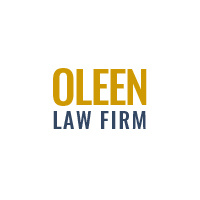 Linn Collection Lawyers, Kansas
Linn Collection Lawyers, Kansas
Not enough matches for Linn Collection lawyer.
Below are all Linn lawyers.
Sponsored Lawyers
1-10 of 36 matches
Divorce & Family Law, Criminal, Accident & Injury, Estate, Real Estate
If you need an attorney that will always protect your best interests, call the Oleen Law Firm today. The Oleen Law Firm is committed to defending our clients and ensuring their fundamental rights are always protected. Whether you need a criminal lawyer, a divorce attorney, an estate attorney, or a personal injury lawyer, we offer aggressive and experienced representation.
(more)Criminal, DUI-DWI
Thomas Addair graduated from Manhattan High School and Kansas State University. He attended law school at the University of Kansas. This is where Tom first became interested in criminal law. He represented the criminally accused through one of the law school's clinics. This experience showed him early on that he wanted to be a criminal defense lawyer. On the Way to a Passionate Career in Law After graduation, Tom became the City Prosecutor for the city of Manhattan. This position gave him a great deal of experience in criminal law, experience that Tom now puts to use aggressively defending his clients. Not only did he gain a vast amount of trial experience, but he also received training in DUI investigations and other areas of criminal law available only to prosecutors. During his time as the City Prosecutor, the city of Manhattan began prosecuting marijuana charges. Tom developed the policies and procedures of drug prosecution still used by the city today.
(more)





